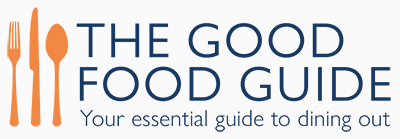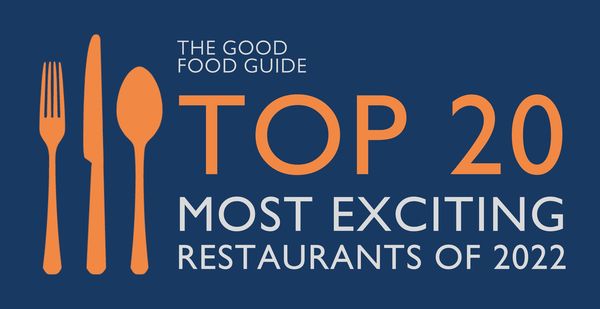Cereal Bakery is in the newly renovated historic trading post, Burr’s of Tongue, founded in 1932 by Peter Burr. Once a lifeline for this remote, rural community it had all the essentials: petrol pump, tearoom and bakery. Now, after a visionary renovation project, it’s a community hub again – and a welcome pitstop on the popular North Coast 500.
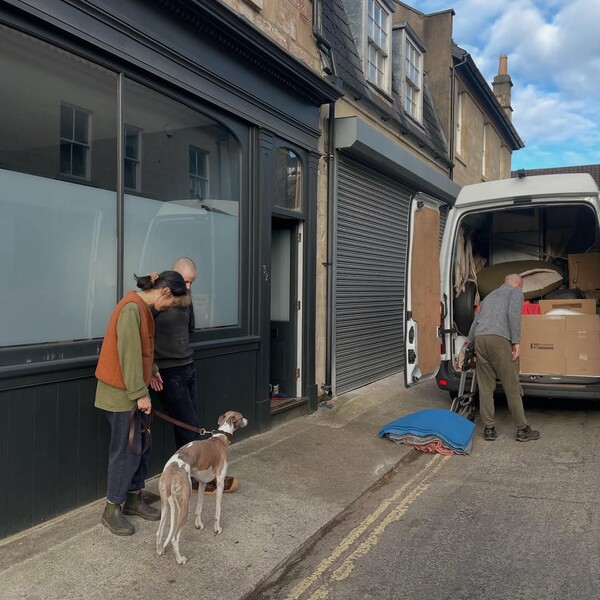
The ox-blood-daubed clapboard store with matching tin roof and white-trimmed windows wouldn’t look out of place in Norway’s Lofoten Islands or the Stockholm Archipelago - but then it is owned by Anders Holch Povlsen, Danish entrepreneur, landowner and grand-scale rewilder. His company Wildland held a community meeting to find out what was on locals’ wish list. The response: a bakery.
Wing Mon and Niall had been searching for the right location to open a bakery in the Scottish Highlands for over 18 months when they got a tip off about Tongue. ‘We’d never been this far north. We came up to take a look and it was a construction site,’ she says, ‘but we saw all the drawings - and we have good imaginations! We knew straight away that this was where we wanted to be.’
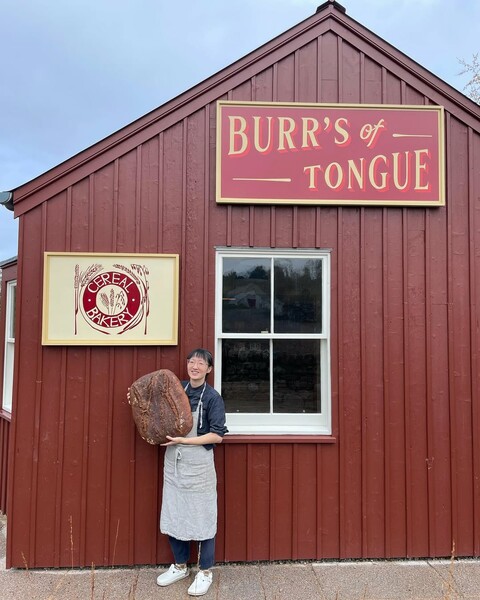
Wing Mon’s baking journey was sparked by a life crisis as she approached 30 back in 2012. She had been working in recruitment, more by accident than design, but as her twenties drew to a close she took stock. ‘I realised I was unhappy and thought, I don’t want to be doing this.’ She had always loved baking so signed up for a patisserie course ‘to test the waters.’ And that was when she discovered bread. ‘It sounds quite cheesy, but I immediately knew that that was what I was looking for.’
She found a job at a bakery in Manchester called Trove (since closed down) and was thrown in at the deep end. ‘It was a lot of responsibility for someone who didn’t really have any experience. I just had to just get on with it and do what I could with the limited knowledge I had. It formed the way I approach baking.’
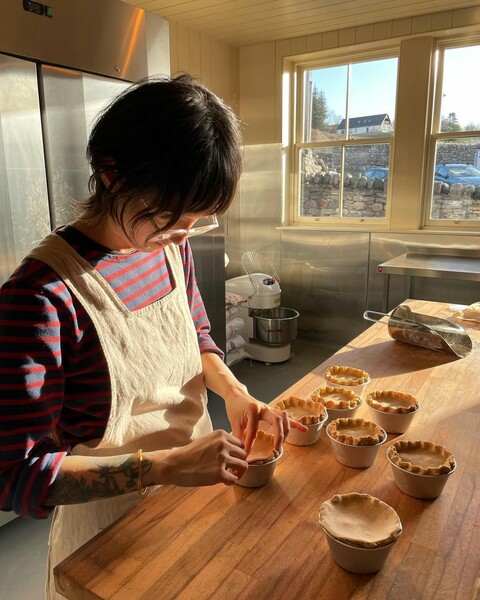
‘There are lots of things we can’t make’
‘We use wholemeal flour and unrefined sugar so when I look at a recipe nine times out of 10 I know I’m not going to be able to follow it. There are lots of things we can’t make because of the ingredients’ limitations and because we don’t want to work with ingredients that have been grown in a harmful way.’
‘There’s also variability in batches of flour and the panela (dehydrated sugarcane juice) can be very different each time and needs adjustment,’ Niall adds. ‘In terms of recipe quantities, using natural, unrefined ingredients that are changeable requires an intuitive way of working.’
The couple were living in the Lake District as the pandemic came to an end and the idea of opening their own bakery was born. After holidays in the Highlands at Niall’s grandfather’s lodge, they had realised they wanted to live there permanently, but after nothing came of their initial search, they decided that the time wasn’t right and Wing Mon accepted a job at Landrace Bakery in Bath. ‘We knew the food scene, producers, lots of people down there doing really good things, so we thought let’s just go to Bath and work it out from there.’
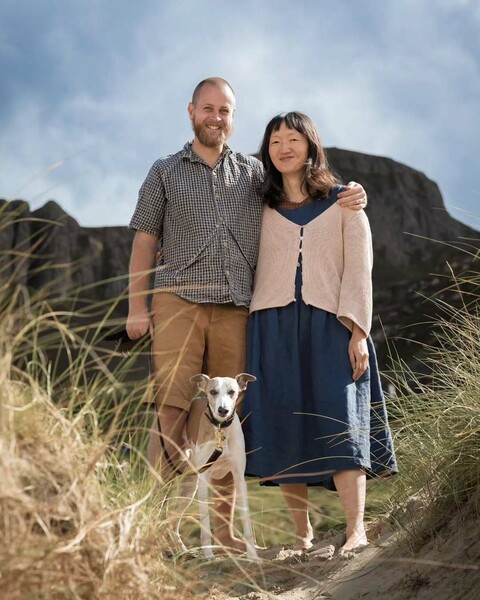
While in Somerset they started baking out of their own kitchen, renting counter space in a shop to sell the baked goods but they still dreamt of Scotland. And so began the 18-month search that led to Tongue.
The bakery, pared-back café and ‘store’ (a curated selection of books, local produce from flour to Highland honey and local crafts) is currently open Friday to Sunday but they also hold events such as supper clubs and book talks. They’ve slotted right into the local community but there have been some logistical challenges along the way.
‘When we moved to Scotland, I knew what the picture was,’ Wing Mon explains. ‘There aren’t many mills and there are a lot of bakeries. In England some bakeries now have their own mills and farmers have begun milling on site. We’d like to do something similar here.’
At the moment, they source flour from Fife-based Scotland the Bread and the Lapwings Community Mill in Aberdeenshire. Wing Mon’s signature ‘daily bread’ is a wholemeal tin-shaped sourdough made with a mix of flour from both for ‘a combination of flavour and functionality.’ The Scotland the Bread flour mixes Scandinavian and Scottish heritage varieties. ‘It’s very flavourful and it’s great as an all-rounder but doesn’t have the strength of a breadmaking flour. The Lapwings is a modern breadmaking wheat so the combination of the two means that we get not only the flavour but the texture we’re looking for.’
‘A lot of people think of wholemeal bread as this old-style, dry unappealing bread. We make a loaf that is actually very soft for a wholemeal and we have a lot of older customers who enjoy it.’
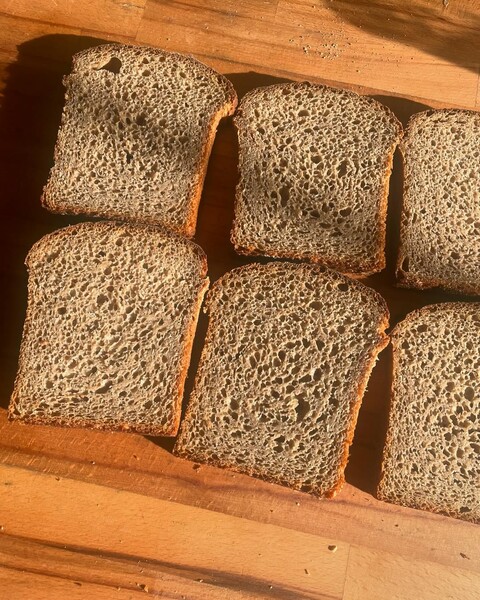
‘The cultural heritage of milling and growing grains in the Highlands is at risk of being lost’
‘We would love a mill and some land to grow heritage grains,’ Niall goes on. ‘The cultural heritage of milling and growing grains in the Highlands is at risk of being lost. It would be great to see a resurgence of that and we’d love to be part of it.’
‘There are a lot of people in the Highlands who bake bread themselves so for them to be able to access freshly milled flour with locally grown grain would be something really special,’ Wing Mon agrees.
‘If you want to see change happen then you have to be in it for the long term. Most people don’t think about the agriculture behind baking,’ Niall adds. ‘Having a mill, providing employment for people in the community, encouraging kids to see the grain being milled and having a bit more understanding about how bread’s made, that’s the goal.’
Read our review of Cereal Bakery here.
— Words by Lucy Gillmore
